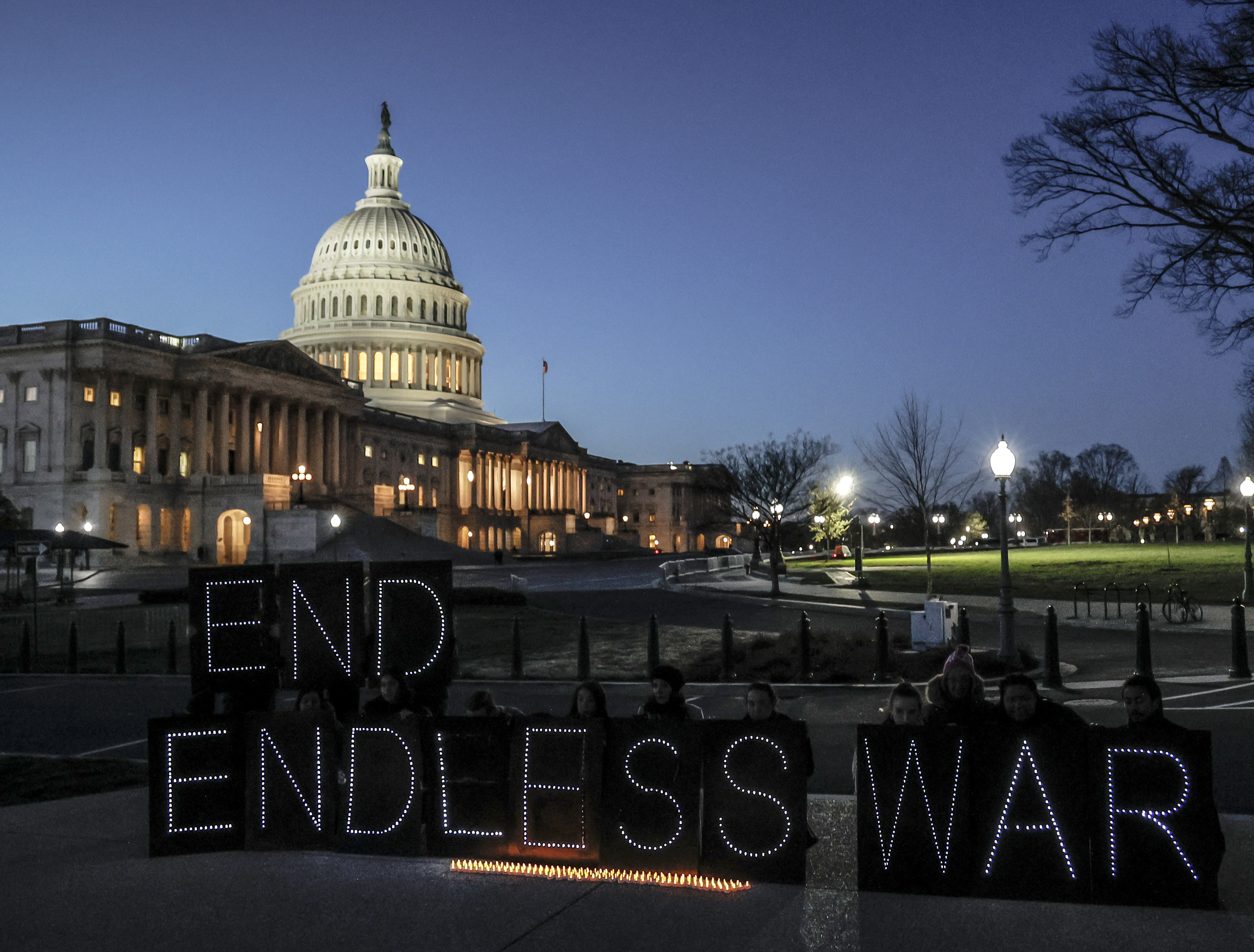Bipartisan Senate votes to repeal authorization for both Iraq wars


A free daily email with the biggest news stories of the day – and the best features from TheWeek.com
You are now subscribed
Your newsletter sign-up was successful
Decades after Congress cleared the way for the United States government to wage war in Iraq, a bipartisan group of senators on Wednesday took the extraordinary step of voting to repeal two Authorizations for Use of Military Force, setting in motion a push that — if successful — would mark the first successful retraction of congressional authority to launch war on a foreign nation in nearly half a century.
By a vote of 66-30, lawmakers approved a measure to repeal the 1991 AUMF and its 2002 counterpart that codified the first and second Iraq wars, launched under presidents George H.W. and George W. Bush. The last time an AUMF was fully repealed was in 1971, when Congress ended the government's 1964 authority to wage war in Southeast Asia. As The Hill noted after Wednesday's vote, the 2002 AUMF has been cited in recent military actions — including the assassination of Iranian General Qassem Soleimani in a 2020 Baghdad missile strike — long after the U.S. drew down its official presence in Iraq.
Senate Majority Leader Chuck Schumer (D-N.Y.) heralded the measure as long overdue, saying "the United States, Iraq, the entire world has changed dramatically since 2002, and it's time the laws on the books catch up with those changes."
The Week
Escape your echo chamber. Get the facts behind the news, plus analysis from multiple perspectives.

Sign up for The Week's Free Newsletters
From our morning news briefing to a weekly Good News Newsletter, get the best of The Week delivered directly to your inbox.
From our morning news briefing to a weekly Good News Newsletter, get the best of The Week delivered directly to your inbox.
"Congress passed the 1991 and 2002 AUMFs for specific purposes that were resolved long ago," former Obama administration official and current Just Security editor-in-chief Tess Bridgeman told US News and World Report. "Repealing them not only prevents future abuse of these statutes to engage in unauthorized war but would also show that Congress recognizes our current threat landscape is quite different than the way the world looked in 1991 or 2002"
Senate Minority Leader Mitch McConnell (R-Ky.), however, came out sharply against the repeal, explaining in a statement that while "it no surprise that Leader Schumer and the Biden Administration would rather debate the history of the Iraq War than grapple with their own recent foreign policy failures," the 2002 AUMF in particular "bears directly on the threats we face today in Iraq and Syria from Iran-backed terrorists."
Crucially, however, a separate 2001 AUMF permitting the government to "use all necessary and appropriate force against those nations, organizations, or persons he determines planned, authorized, committed, or aided the terrorist attacks that occurred on September 11, 2001, or harbored such organizations or persons, in order to prevent any future acts of international terrorism" remains untouched
The repeal now heads to the Republican-controlled House, where Speaker Kevin McCarthy (R-Calif.) has indicated he would support the bill so long as the 2001 AUMF stays intact. The Biden administration also came out in support of the repeal, saying that to do so would be "in keeping with President Biden's longstanding commitment to replacing outdated authorizations for the use of military force."
A free daily email with the biggest news stories of the day – and the best features from TheWeek.com
Rafi Schwartz has worked as a politics writer at The Week since 2022, where he covers elections, Congress and the White House. He was previously a contributing writer with Mic focusing largely on politics, a senior writer with Splinter News, a staff writer for Fusion's news lab, and the managing editor of Heeb Magazine, a Jewish life and culture publication. Rafi's work has appeared in Rolling Stone, GOOD and The Forward, among others.
